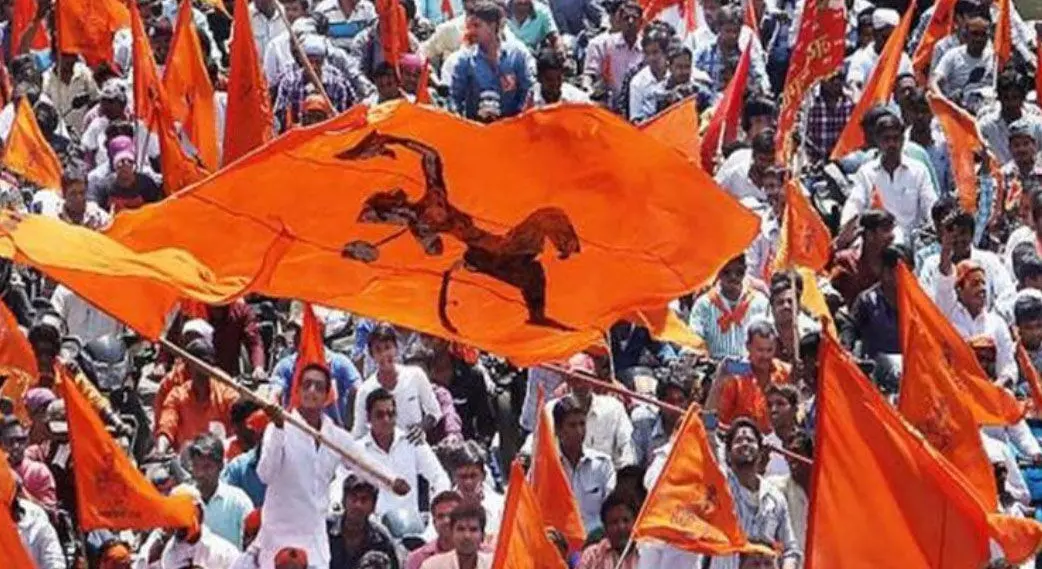
Of bringing up Bajrang Dal ban again?
text_fieldsIt was reported yesterday that the Sangrur court in Punjab has summoned National Congress President Mallikarjun Kharge on July 10. The court was responding to a complaint filed by Hindu Suraksha Parishad founder Hitesh Bhardwaj. The petitioner is perturbed by the Congress’ election manifesto promising to ban Bajrang Dal along with Popular Front and other Taliban groups, when it comes to power. The petitioner is demanding Rs 100 crore in damages and interest alongside a court expense of Rs 10 lakh alleging that the Congress has defamed crores of the outfit’s members. The petitioner contended that the manifesto defamed not only Bajrang Dal but also Hanuman devotees. Since it is the court to decide its merit, there is no point in discussing it here. However, this is not the first time the Congress is bringing up Bajrang Dal's ban. M.B. Patil, Home Minister and Chairman of Congress Campaign Committee, sought to ban RSS and Bajrang Dal along with Popular Front in April 2022. Patil said that the Congress would support a complete ban of outfits including SDPI, Vishwa Hindu Parishad and Sri Ram Sena. This time round at the peak of election campaign, the Congress must have included ban of Bajrang Dal in manifesto aiming at Muslim and Christian votes. No sooner had this come out than Hindutva Party leaders seized upon it, to stir up the Hanuman devotees. The Congress defended it by participating in the Hanuman Chalisa. Though the issue has no relevance beyond vote bank politics, it is pertinent to discuss whether banning any outfits will help prevent hate propaganda and communal strife across the nation.
The Rashtriya Swayam Sevak Sangh is the umbrella for many extremist groups such as the BJP, known as the Sangh Parivar, the Vishwa Hindu Parishad, its youth wing Bajrang Dal, the Yuva Morcha, the women's organization Bharatiya Mahila Morcha, and the student organization ABVP. The ruling Hindutva Front is made up of them all. Animosity and hatred towards the Muslim and Christian religious minorities is the hallmark of the Hindutva movement. Muslim minority which forms 15 percent of population is their biggest target. From day one in power, they are venting the hate with measures including ban on cow slaughter, ban on triple talaq, citizenship amendment, change of place names with Muslim hints, Prohibition of Religious Conversion Act, misuse of UAPA and hunting by NIA. The Sangh Parivar has no concern about how far its moves tarnishes India’s reputation within and without. The most recent documents released by the United States have also expressed concern over the growing violence against Muslim and Christian religious groups in India. The official document has been released ahead of Prime Minister Narendra Modi’s visit to the US.
Apparently, the Sangh Parivar is not yet ready to tone down Hindutva extremism, despite losing power in Karnataka. Given this situation, the government or parliament will certainly not consider banning Bajrang Dal, The outfit, formed during the Ram Janmabhoomi agitation in the 1980s, has committed decades of communal and ethnic attacks and hate campaigns. Now the Congress’ promise to ban the outfit, having not done so during the 10 years when UPA was in power, is no more than a campaign strategy. It is about time to work sincerely for fundamental constitutional principles, democracy, secularism and the non-communal image of India and fight communal and ethnic fascism joining together secular forces, religious minorities and human rights movements. The Karnataka election results should be an inspiration for that.

























